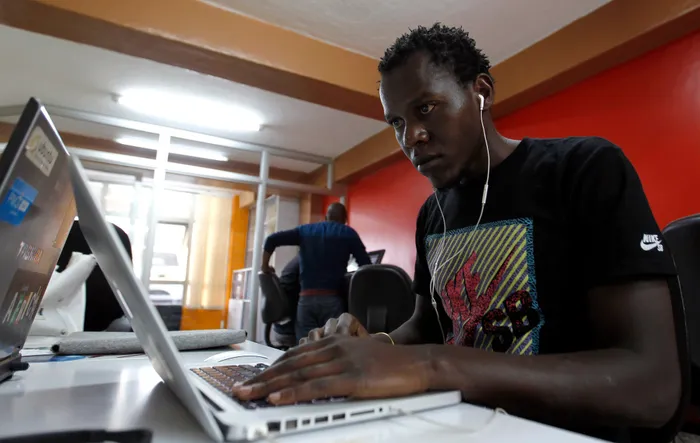
This article explores the complexities of internet connectivity in South African townships, highlighting the need for governance and awareness to protect communities from potential harms.
Image: REUTERS/Thomas Mukoya
When you are in need, there’s a temptation to express gratitude without questioning. Any form of clarity-seeking exercise is often associated with being ungrateful.
This is clearly visible when one looks at the digital divide challenge in South Africa. It was once fashionable for businesses to donate computers without the necessary support and gifting of computers that were approaching their end-of-life cycle.
Those who accept such gifts sit with the burden of storage or even keeping hardware that is hardly functioning. We are now beginning to see a similar trend in the process of enabling access to the internet. The connectivity challenge in townships has attracted solution providers who are offering mixed blessings.
On the one hand, they are providing useful tools that enable access to information and other resources.
On the other hand, they are also probably deploying connectivity that is compromising privacy, violating data laws, ignoring environmental concerns and denying communities well-deserved compensation for building connectivity infrastructure in communities.
Currently, no evidence suggests that there’s any form of violation. What is lacking is the governance that should accompany the deployment of technology.
It is reasonable to assume that some residents in townships may not completely understand the Protection of Personal Information Act (POPIA).
Questions have to be asked about processes that have been followed to deploy township connectivity where it’s in existence.
Imagine this scenario: a grandmother who lives alone gets approached by young people who are offering a better life through access to the internet at a lower cost.
When a device is installed within a household, to what extent is the grandmother aware of the implications?
When a pole with wires is installed, is she properly compensated for such an installation? When the grandmother has internet installed, how is her data handled when she makes use of wifi connectivity?
If the young people who are assisting the elderly to have internet access are ticking all the boxes of safeguarding privacy, data and compensating where it’s due, then all is perhaps good.
However, what happens when they are not? Who is there to safeguard communities from the potential harm that comes with all this connectivity?
While policies and chapter 9 institutions may be there to safeguard communities from harm, the digital transformation underway in townships requires a new form of oversight.
We have to learn from the wrongs committed by social media giants across the world. We now know that data has been abused for selfish gain.
We also know that several tech giants have been fined for violating laws. They have done this in communities where there’s a high level of literacy and watchdogs.
Fortunately, in Europe, institutions have been proactive in punishing wrongs committed by technology giants.
In South Africa, especially in areas where there’s a low level of digital literacy, what's the likelihood of abuse?
At this point, we do not know.
We do know that there’s a need for oversight. Unchecked (do good) entrepreneurs can easily turn what is supposed to be a lifesaving exercise into a harmful tool.
South African townships need urgent digital governance as the internet becomes part of communities.
This process has to be done in a way that does not harm innovation. Communities need to be part of technology governance.
This will be difficult without the necessary awareness. There’s now a need to create more awareness about the implications of connectivity.
While it allows access to all the good things, it also brings with it dangers. To protect all users of the internet, including township, there’s a need to strengthen governance if we are to avoid a disaster.
Wesley Diphoko is a Technology Analyst and Editor-In-Chief of FastCompany (SA) magazine.
